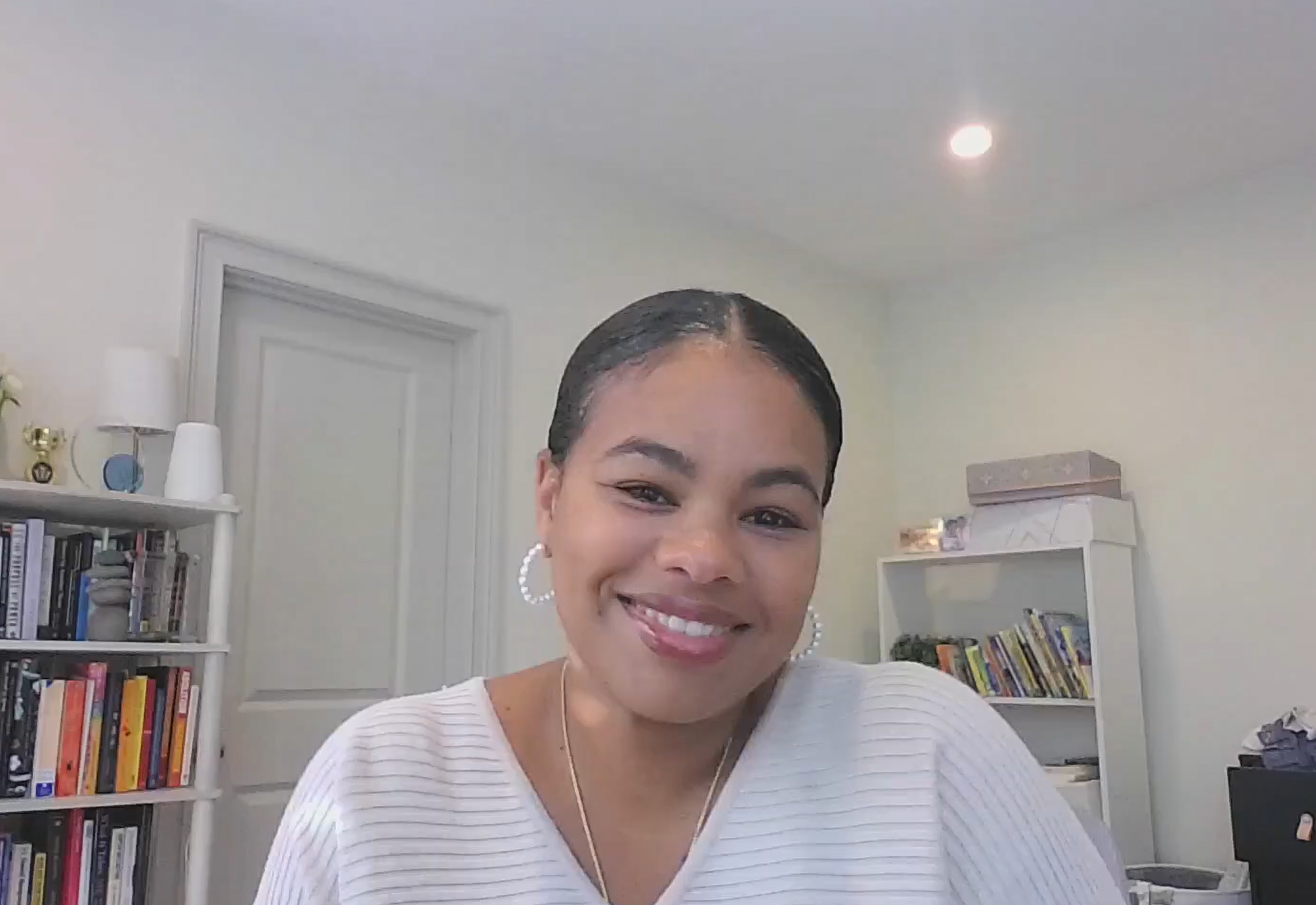Early Career Talent: Unexpected Drivers of AI Innovation
By: Ainsley Castro Charles, National Director, Strategic Partnerships, YUPRO Placement
Artificial intelligence is transforming the workplace in real time. For many leaders, this transformation raises a pressing concern: if AI automates so many tasks once assigned to junior employees, what happens to early career roles? The assumption is that these opportunities will disappear, leaving companies without an entry point for young professionals and robbing them of the fresh perspectives that often fuel innovation.
But what if the opposite is true? What if early career talent, with their adaptability and hunger to learn, are precisely the people companies need to help harness AI? I’ve seen this play out firsthand with one of our candidates, Sam Ebengho—and his story offers a glimpse of what the future of work can look like.
A Commute Powered by Curiosity
When one of our Placement Success Managers at Year Up United first shared Sam’s story with me, I was immediately struck by his determination. A graduate of the Year Up program, Sam had been placed through Year Up United at a major employee credit union in Seattle.
Despite a nearly two-hour commute each way, he spent his travel time immersed in an AI engineering textbook. He wasn’t waiting for someone to assign him a project—he was preparing himself to innovate. By the time he arrived on-site, he had already invested hours into building knowledge he was eager to apply in the real world. That kind of drive doesn’t come from a job description; it comes from curiosity and commitment.
Turning Learning Into Impact
Placed on an IT team, Sam saw an opportunity to improve the organization’s use of ServiceNow, the ticketing and incident management platform. Rather than sticking to routine tasks, he explored how AI and automation could reduce noise, streamline alerts, and improve decision-making.
Using Microsoft Power Automate, he developed flows that worked alongside ServiceNow to help the team identify urgent tickets more efficiently. Instead of thousands of alerts overwhelming the system, Sam’s solution helped filter and prioritize them, giving his colleagues a clearer view of what mattered most.
This wasn’t just an academic exercise. Within months, Sam created a tangible improvement that supported innovation, collaboration, and productivity for the entire team.
Lessons for Employers
Sam’s story isn’t just about one candidate’s success. It’s a case study in what early career talent can bring to companies that are willing to give them a chance.
- Curiosity and Initiative: Sam wasn’t told to build an AI-powered solution. He chose to, driven by his desire to learn and contribute.
- Fresh Skills in a Fast-Moving Field: While senior employees often carry deep institutional knowledge, early career talent like Sam quickly adapt to new tools and technologies. In less than six months, he was applying AI concepts that many undergraduates might not encounter for years.
- AI as a Platform for Growth: Far from eliminating entry-level opportunities, AI creates new ones. Projects that require experimentation and iteration are a natural fit for emerging professionals who are eager to prove themselves.
- Economic Agility: For companies balancing innovation with cost pressures, early career hires provide a way to advance AI initiatives without overloading senior staff or incurring the high cost of specialized consultants.
Rethinking the Role of Early Career Talent
We often hear that AI will wipe out large portions of the entry-level job market. There’s truth to the idea that some traditional tasks are changing. But what I’ve witnessed tells a different story: early career professionals can be the ones who unlock AI’s potential inside organizations.
They are the “brainpower behind the technology,” as I like to put it. AI doesn’t innovate on its own—people do. And early career talent, when given the space and support, can play a vital role in shaping how companies implement these tools.
That means reframing how we think about entry-level roles. Instead of viewing them as stepping stones destined to disappear, companies should see them as incubators for innovation. Early career talent can experiment, test, and refine solutions that free up senior leaders to focus on strategy.
Why This Matters Now
Workforce development programs like Year Up United graduate thousands of professionals every year, equipped not just with technical training but with the grit and determination forged through intensive learning and real-world experience. These candidates don’t just know the theory—they’ve practiced it in corporate environments, balancing collaboration, deadlines, and cultural expectations.
In Sam’s case, his internship didn’t lead to a full-time role simply because of budget constraints, not because of his performance. But the impact he made in just a few months demonstrates why companies should be paying attention. The opportunity is clear: early career talent is ready to take on challenges that matter.
Candidate Spotlight: Sam Ebengho
Background
- Graduate of the Year Up United workforce development program in Seattle
- Associate of Applied Science in Networking & Cybersecurity (Tacoma Community College)
- Certifications: Microsoft Azure Fundamentals, Microsoft AI Fundamentals, Microsoft Power Platform Fundamentals
The Internship
- Placed on the IT Service Management team at Boeing Employees Credit Union (BECU)
- Long commute— used train time to study an AI Engineering textbook
- Carried that knowledge into his work, eager to apply it
Innovation in Action
- Leveraged ServiceNow and Microsoft Power Automate to streamline incident management
- Developed automated flows to reduce alert noise and prioritize urgent tickets
- Helped the IT team move from reactive firefighting to more proactive operations
Impact
- Improved team efficiency and collaboration
- Demonstrated how early career talent can drive AI adoption in less than six months
- Showed that curiosity and initiative can translate into measurable business value
Building the Workforce of Tomorrow
As someone who has had the privilege of working closely with this talent pool, I believe stories like Sam’s hold an important lesson. Companies don’t need to wait for innovation to arrive from outside or from the top down. Sometimes it’s already sitting in the hands of a motivated intern, eager to apply what they’ve learned on a long commute with a heavy AI textbook.
The future of work depends on people who are curious, resilient, and unafraid to try new things. Early career talent embodies all of these traits. If leaders are willing to rethink how they hire and how they structure entry-level roles, they may discover that the next breakthrough doesn’t come from eliminating these positions—but from empowering them.
Stories like Sam’s don’t happen by accident. They’re the result of intentional programs that prepare, place, and support early career professionals in environments where they can thrive. At YUPRO Placement, we see this every day: motivated talent who are ready to bring fresh ideas and real value to their teams. For organizations looking to stay innovative while building a sustainable workforce, partnering with a provider that specializes in connecting you to this pool of talent can make all the difference.
Stay Up-to-Date with the Latest on Skills-First Hiring Resources
Sign up for YUPRO Placement Emails
"*" indicates required fields


